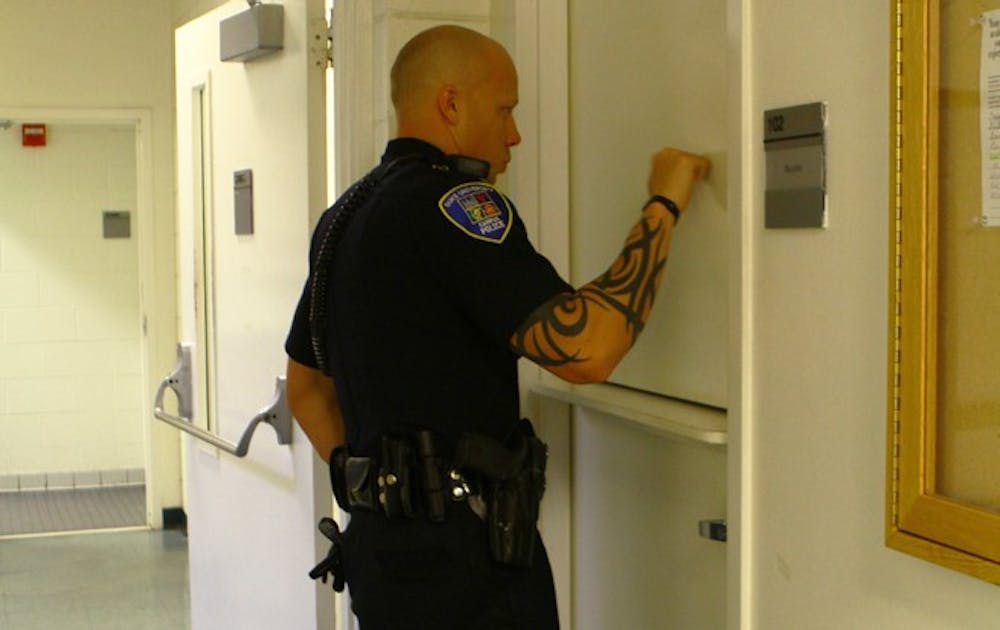Duke Student Government is looking to change the Knock and Talks program administered to students living off campus.
Last Wednesday, DSG approved a proposal to amend the current Knock and Talks program because the nature of Knock and Talks may be intimidating and even foster a sense of distrust to certain off-campus groups, said Derek Rhodes, DSG vice president for Durham and regional affairs.
As part of the program, created in the 1980s to help acclimate students to their new off-campus homes, administrators and Duke Police visit 12 to 15 off-campus student residences to discuss housing policy and regulations early in the Fall.
“Knock and Talks needs to be changed to be something more inclusive, and there needs to be more collaboration between Duke, the neighbors and the students,” Rhodes said. “I’m really advocating for students on this one.”
At its core, the informative nature of the program is good, Rhodes said, but noted that he has some concerns over its implementation.
With numerous greek organizations occupying off-campus houses, many people come to associate police with trouble, Rhodes said. Students may feel targeted and intimidated, and Rhodes said he wants to make Knock and Talks completely student-run or eradicate the program.
“A revision of the Knock and Talks program is a huge step in the right direction for altering perceptions of Duke students in local neighborhoods,” Rhodes said. “Showing that you trust students is a major component to forming stronger relationships between students and administration.”
Rhodes said he wants to create initiatives that increase student involvement and make interactions between the off-campus student residents and administration more relaxed. These steps will help create mutual trust between the two parties, he added.
Senior Andrew Bentley, whose off-campus home was visited by an administrator during the first week of classes, said Knock and Talks was well-intentioned but had some flaws. It does not help students build relationships and reduce tensions with their neighbors, he noted.
“Without working to open lines of communication between the students and the other members of the community, the students will not be able to curb those behaviors that are problematic for their neighbors,” Bentley wrote in an email Tuesday. “I think that moving forward, Duke needs to first better educate new tenants as to the history of their residence.”
Noting that the Office of Student Conduct was open to changing the program, Rhodes said he looks forward to collaborating to develop better methods of informing students, ranging from block parties to non-mandatory informational events.
From an administrative standpoint, the purpose of Knock and Talks is more of a preventative measure and a way for information exchange, said Dean of Students Sue Wasiolek.
It is important to maintain a police presence, Wasiolek added. This year, the students who were selected for Knock and Talks appreciated the efforts to inform them of housing policies.
“Many times, we get questions related to laws and ordinances where I find the police to be very helpful in answering,” Wasiolek said. “Police have always taken a backseat role—they don’t want to come across as being intimidating or threatening—they are there purely for providing information and to answer questions.”
The Durham neighborhoods surrounding off-campus residential areas also accepted the policies outlined by Knock and Talks, she added.
Get The Chronicle straight to your inbox
Signup for our weekly newsletter. Cancel at any time.

